women
empowerment
We promote, protect and fulfil the human rights of marginalized indigenous women. Gender equality and the elimination of all forms of violence and discrimination against women and girls is paramount.
SEEDS envisions women gaining access to and control over resources hence we encourage alternate roles and responsibilities that do not inhibit them.
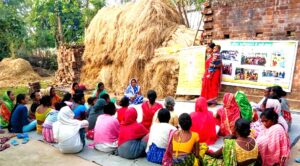
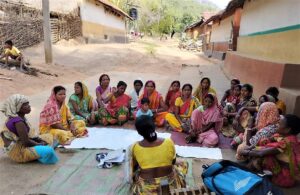
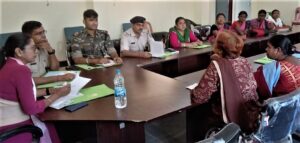
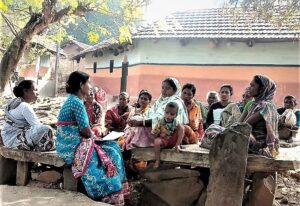
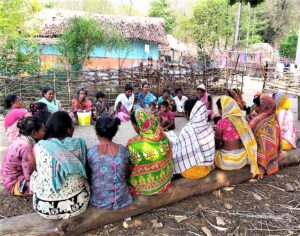
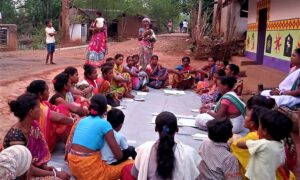

Supported by SEEDs, the nine Women’s Forum serve as a platform for village women to gain easy access to information and knowledge (including government schemes and notifications, access to entitlements), registration/redressal of cases related to violence against women, counselling and for attaining justice.
In the past one year 1710 cases were registered in 112 villages. Out of these, 81% cases were of domestic violence; 8% bigamy; 7% extra-marital relation; 2% child marriage and 2% others. As of now, 77% of these cases have been already resolved.
The maximum number of cases [54%] have been resolved at the village level with the intervention of the Village Headman and the Women Cluster Leaders (WCL) of respective villages. A quarter of the cases [24%] were resolved by the women Barefoot Counsellors, locally known as DishaDi, and the Forum members. The complex cases are handled by the Cluster Women Leaders with participation of the Village Headman and the village community which includes the family members of the oppressed woman and the oppressor. Such cases constituted 21% of the total registered cases. About 1% cases [14 nos.] reached the police station and got resolved with police intervention. There is a periodic follow-up of the cases that have been resolved in order to ensure that it does not recur.
112
villages surveyed
1710
cases recorded
1310
cases resolved
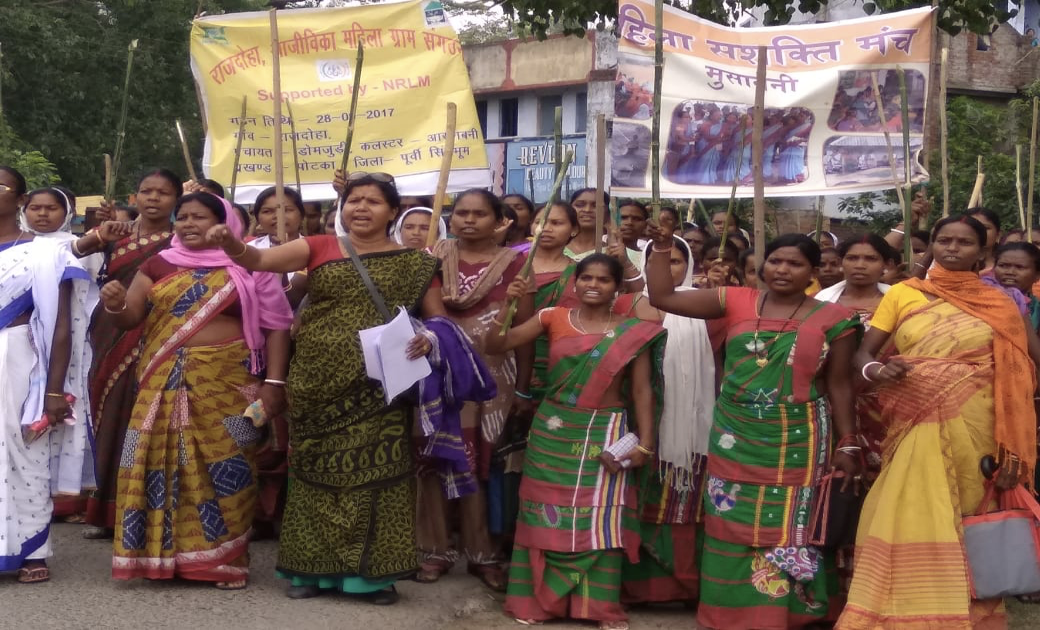
Women Cluster Leaders at the police station demanding quick action
Comprising of over 4000 poor rural women, the forums actively advocate the issues of the poor to the fore and pressurise the local government/power mongers to act on them. It plays the role of watchdogs in ensuring proper implementation of government schemes.
Study on the Status of Gender Based Violence in Rural Areas

45 year old tribal lady, Mithila states, “We are a family of four members. My husband has alcohol every day and fights with me. Thus there is no peace at home. He tortures me mentally and doesn’t allow me to talk to anyone. If ever he sees me talking to anyone he beats me up and indulges in sexual violence”.
A first of its kind Study has been conducted with 1005 women in 9 villages spread over six Blocks in East Singhbhum and Khunti districts of Jharkhand. A key objective of the Study was to gather information on the prevalence of women’s experiences of violence. No incidents of violence were reported outside marriage. The Study combines quantitative and qualitative approaches to understand the magnitude, causes and consequences of violence in a family. The quantitative study was designed as an interview of all women in the relevant age group (18 to 50 years) in these villages. Four types of violence were measured, viz. physical, economic, emotional and sexual. It is disturbing to know that among the surveyed families, 44% women faced violence at home.
The survey has shown that a vast majority of abused women never seek help from the police or other agencies for help; thus data on violence available from formal institutions are likely to severely underestimate the true magnitude of the problem. Often women feel that there is no alternate option for them but to tolerate and carry on. Fear of backlash and more violence from the perpetrator, stigma and the belief that no one would help, are some of the reasons why women do not report violence.
Interventions on 3 focus issues
- Equal wages for women and men in agricultural work
- Inclusion of women in the Village Headman Committee – a traditional male dominated decision making body in every village
- Ban on alcohol – the main cause for domestic violence.
Outcomes showing dent in the age-old patriarchal systems
- Equal wages for women and men in agricultural work adopted for the first time in 32 villages.
- First time ever, women inducted in the all-male village decision making body in 10 villages.
- Seven villages have been made alcohol-free.
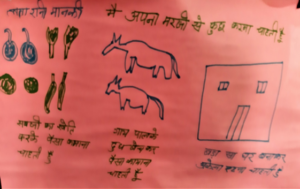
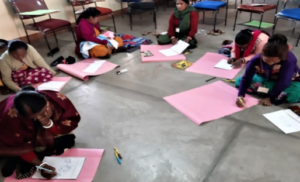
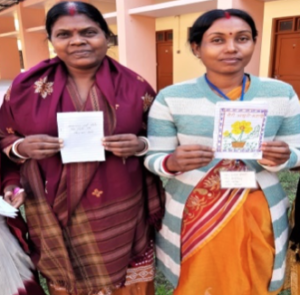
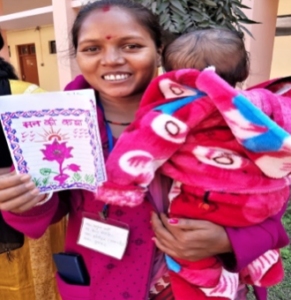
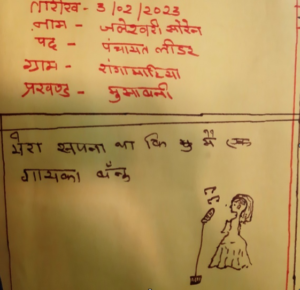
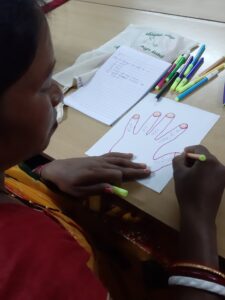
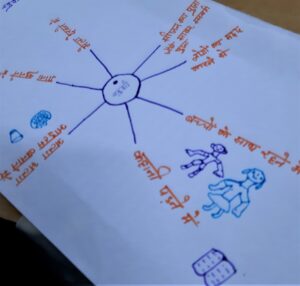
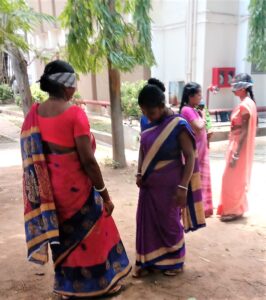
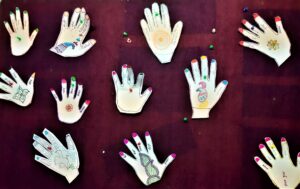
Grass root women leaders participate in Workshops on Safe Space
Eleven tribal leaders participated in the first of its kind, residential workshop in Jamshedpur. It was a new experience for them digging into their past life, relating their joys and sorrows , for which they never had found the time. Their bagful of experiences was loaded with uneasy silence, tears, frustration, stories of deprivation and exploitation. The next session to depict their dreams and aspirations on paper was an enjoyable one. Lata wanted to live in a big house all alone, doing things which she liked. Urmila wanted a life full of freedom. Jaleshwari wanted to become a singer and so on.
The main tools that were used included Graphic representation of five core values that are paramount for us; Happiness mind mapping; Writing an appreciative letter to oneself; Trust Walk; A memorable act which has changed somebody’s life; Most liked quality of fellow participants; Learning from the Bamboo; Way forward etc.
WALK WITH US
As has been proven time and again, if a community has to be developed, first of all its women need to be empowered. Become harbingers of change by contributing to our efforts.
